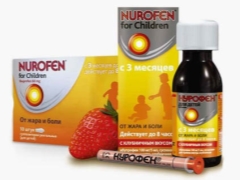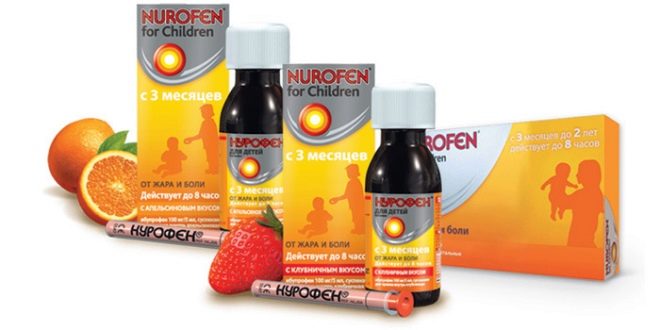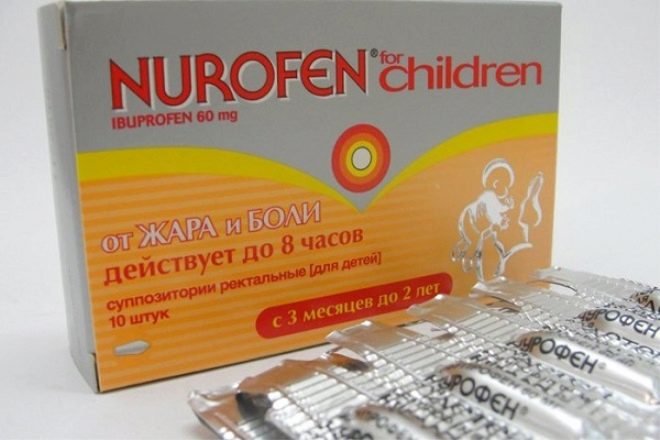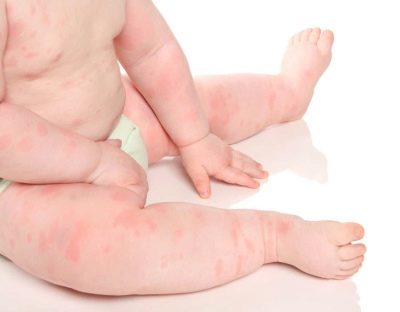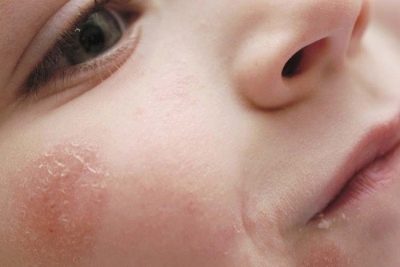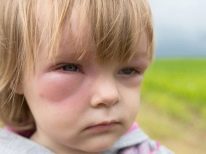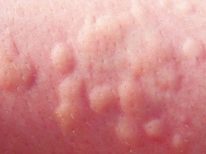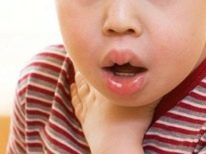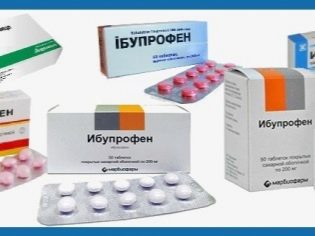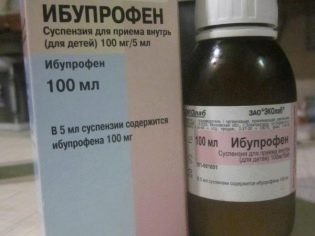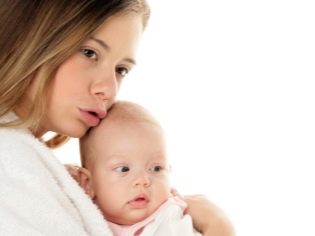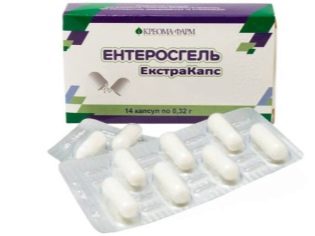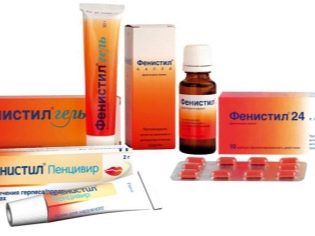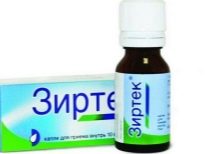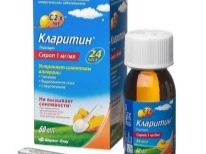Allergy to Nurofen in a child
Nurofen is often prescribed to children with elevated body temperature, since such a drug ibuprofen effectively fights fever with SARS, influenza, or another infection. Also, this medicine helps to eliminate or reduce pain, for example, in the throat with sore throat or in the joint after injury.
For the treatment of children, Nurofen is often used in suspension, since this sweet strawberry or orange medicine is allowed from 3 months of age and can be used in young patients up to 12 years. As a rule, children without any problems swallow pleasant syrup, and it is very easy to dose it using a special measuring syringe.
For the little ones Nurofen is produced in candles. This form is called the most convenient for infants. Patients who have already turned 6 are allowed to give Nurofen in tablet form, which contains 200 mg of ibuprofen in each tablet.
As with any other medicine, an allergic reaction may occur to Nurofen. How to suspect a son or daughter of allergy to this drug, why does it appear and how to act if the components of the candles, suspensions or tablets have become a dangerous allergen for the child?
What is the allergy to Nurofen?
A negative reaction to taking such an antipyretic drug, if it turned out to be baby allergenmay develop slowly or very quickly. In the first case, it often looks like:
- Rash, patches of redness, scaly patches, itching and other skin changes.
- Shortness of breath and dry cough, which occur with seizures due to laryngo or bronchospasm.
- Liquefied stools, bloating, pain in the stomach and other manifestations of irritation of the digestive tract.
- Headaches or dizziness.
Such symptoms can be barely noticeable and disappear after a few hours, but quite often they persist for a couple of days and bother the child. At the same time, they can both disappear on their own and require treatment.
One of the most frequent manifestations of allergy to Nurofen is skin reaction in the form of dermatitis. Itchy areas, red spots or rashes appear on the abdomen, hands, face and other parts of the baby’s body. They can be small in size or spread rapidly throughout the body and form large patches of inflammation.
In rare cases, taking Nurofen can provoke an immediate reaction, which can be dangerous to the health and life of a small patient.
This happens with repeated use of the drug, when the first dose of the drug effectively lowered the temperature and eliminated the pain, but had no adverse effects.
The thing is that during the "acquaintance" there was a sensitization of the body and each subsequent use of Nurofen for such a child will be more and more dangerous. A baby can develop:
- Quincke swelling.
- Hives.
- Anaphylactic shock.
These forms of allergies can affect breathing, heartbeat and other important functions of a child’s body. They require immediate medical attention because they threaten the life of the baby.
Causes of an allergic reaction
Children's body may respond to allergy symptoms:
- On the main component of Nurofen, which stands ibuprofen. In this case, the reaction will occur when using any form of the drug, as well as on any of the analogues with the same active component.In some cases, if you are allergic to ibuprofen, other nonsteroidal anti-inflammatory drugs should not be given to the child (cross-allergy occurs).
- For additional substances. Such a reaction usually occurs when using a suspension or a tablet form, and the candles do not provoke it, since they do not contain harmful chemical compounds (they contain only solid fats to ibuprofen). In such a situation, suppositories can be administered to the child, and if he is older than two years, then an analogue should be selected in which there is no allergy-provoking compound.
The appearance of an allergy to Nurofen and other medicines can be promoted by various factors, including:
- Frequent and long-term ARI.
- Allergic diseases in close relatives of the child.
- Negative reaction to food, pollen, dust and other allergens.
- Early completion of breastfeeding.
- Abuse of drugs.
- Inflammatory pathology of the digestive tract or dysbacteriosis.
In addition, an allergic reaction may be caused by exceeding the dosage of the drug, and the simultaneous use of other drugs, so it is strictly not recommended to give any medicine to children without consulting a doctor.
How to act?
If after the first use of Nurofen or a few days after the start of treatment with this remedy, the child has any negative symptoms, it is important to immediately stop giving it the drug. Even if the parents have doubts that this is an allergy, the medication still needs to be canceled, and inform your doctor in case of any ailments.
If a negative reaction to the suppository is recommended, the execution of microclystersto quickly remove the medicine from the intestines. If Nurofen was taken by mouth, the patient is advised to give some kind of sorbent, for example, Enterosgel. When the skin reaction is often prescribed local means, for example, gel Fenistil.
In addition, children with allergies to Nurofen, depending on the severity of the reaction and age, are prescribed antihistamine medicines in drops, syrup or tablets. For example, the doctor will write out Erius syrup to the one-year-old baby, and a 2-year-old child will have syrup Claritin, and the six-month karapuzu - Zyrtec drops.
If allergy develops very quickly and the baby's condition worsens, it is urgent to call the ambulance team. Before the arrival of physicians for angioedema, it is advised to apply a cold compress to the affected area so that the swelling does not increase.
